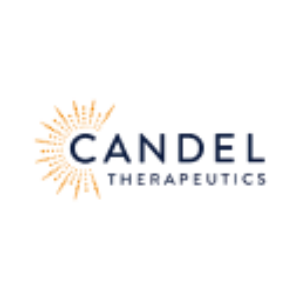Candel Therapeutics Presents Positive Phase 3 CAN-2409 Results in Localized Prostate Cancer at ASCO 2025
Rhea-AI Summary
Positive
- 30% reduction in risk of prostate cancer recurrence or death
- Met both primary and secondary endpoints with statistical significance (p=0.0155)
- 80.4% pathological complete responses vs 63.6% in control group (p=0.0015)
- Higher PSA nadir achievement rate (67.1% vs 58.6%, p=0.0164)
- Favorable safety profile with only 1.7% serious adverse events
- First successful Phase 3 trial in localized prostate cancer in over 20 years
Negative
- BLA submission not planned until Q4 2026, indicating a long wait for potential commercialization
- Treatment requires combination with valacyclovir and radiation therapy, potentially increasing complexity and cost
News Market Reaction
On the day this news was published, CADL gained 0.18%, reflecting a mild positive market reaction.
Data tracked by StockTitan Argus on the day of publication.
NEEDHAM, Mass., May 22, 2025 (GLOBE NEWSWIRE) -- Candel Therapeutics, Inc. (Candel or the Company) (Nasdaq: CADL), a clinical stage biopharmaceutical company focused on developing multimodal biological immunotherapies to help patients fight cancer, today announced that results from the Company’s positive phase 3 clinical trial of aglatimagene besadenovec (CAN-2409) in patients with intermediate-to-high-risk localized prostate cancer will be presented at the 2025 American Society of Clinical Oncology (ASCO) Annual Meeting taking place in Chicago, IL, from May 30 to June 3, 2025.
The objective of this study was to assess whether adding CAN-2409 in combination with the prodrug valacyclovir to standard of care radiation therapy could improve the proportion of patients achieving disease-free survival (DFS) among those pursuing curative treatment for newly diagnosed localized prostate cancer. The selection of DFS as the primary endpoint was a key element of the Special Protocol Assessment (SPA) agreed with the U.S. Food and Drug Administration (FDA).
The Company’s phase 3 clinical trial met its primary endpoint and secondary endpoints and demonstrated statistically significant improvement in DFS (p=0.0155) with a
This is the first multicenter, randomized phase 3 trial in over 20 years to meet both primary and secondary endpoints in localized prostate cancer, potentially redefining treatment for intermediate-to-high-risk patients with prostate cancer who seek curative therapy to avoid cancer-related anxiety, salvage treatments associated with toxicity, and disease progression.
Glen Gejerman, M.D., MBA, Co-Director of Urologic Oncology at Hackensack Meridian Health, and one of the principal investigators of the study, stated: “The improvement in disease-free survival shown in this trial is not only statistically significant, but also clinically meaningful. The clinical findings were reinforced by tissue analysis: CAN-2409 led to a significantly higher rate of pathological clinical response in two-year biopsy samples compared to placebo, indicating that the cancer may have been eliminated at the microscopic level. Effective local control of prostate cancer is essential in patients who seek treatment with curative intent, as patients with positive prostate biopsies, two or more years after radical treatment, face a well-established higher risk of disease spreading within the pelvic region, developing distant metastases, and ultimately dying from prostate cancer during long-term follow-up.”
Paul Peter Tak, M.D., Ph.D., FMedSci, President and Chief Executive Officer of Candel, said: “We are honored that our pivotal phase 3 CAN-2409 data will be presented at the ASCO Annual Meeting, reinforcing the strength of our previously announced results. There remains a significant unmet need among patients with intermediate-to-high-risk localized prostate cancer treated with curative intent, as approximately
Key Findings to be Presented at ASCO 2025 Include:
Primary Endpoint:
- Statistically significant improvement in DFS for CAN-2409 plus radiation therapy (n=496) vs. radiation therapy alone (n=249) (p=0.0155; HR 0.7) in the intent to treat population.
Secondary & Exploratory Endpoints:
- DFS improvement was observed both in patients receiving short term androgen deprivation therapy (ADT) and in patients not receiving ADT.
- In an analysis that focused on prostate-specific outcomes (e.g., censored mortality due to other causes), CAN-2409 showed a highly significant effect (p=0.0046; HR 0.62) on prostate cancer-free survival.
- Significant increase in the proportion of patients achieving a prostate-specific antigen (PSA) nadir (<0.2 ng/ml) was observed in the treatment arm compared to the placebo control arm (
67.1% vs.58.6% , respectively; p=0.0164).
- CAN-2409 induced
80.4% pathological complete responses in the two-year post-treatment biopsies compared to63.6% observed in the control arm (p=0.0015).
Safety Profile:
- CAN-2409 was generally well tolerated, with a low incidence of treatment related, serious adverse events in both arms (
1.7% on CAN-2409 + standard of care vs.2.2% on placebo + standard of care). - The most common CAN-2409-related adverse events were flu-like symptoms, fever, and chills, which were generally mild-to-moderate in severity and self-limited.
Presentation details:
CAN-2409 – Localized Prostate Cancer
- Abstract Title: Phase 3, randomized, placebo-controlled clinical trial of CAN-2409+prodrug in combination with standard-of-care external beam radiation therapy (EBRT) for newly diagnosed localized prostate cancer
- Presenter: Theodore DeWeese, M.D.*, the Francis Watt Baker, M.D., and Lenox D. Baker Jr., M.D., Dean of the Medical Faculty and CEO, Johns Hopkins Medicine
- Session Title: Oral Abstract Session – Genitourinary Cancer – Prostate, Testicular, and Penile
- Session Date/Time: Tuesday, June 3, 2025; 9:45 AM - 12:45 PM CT
- Location: Hall D1, McCormick Place Convention Center, Chicago, IL
* Dr. DeWeese has no relationship with Candel, other than serving as the national principal investigator for Candel’s phase 3 clinical trial of CAN-2409 in patients with intermediate-to-high-risk localized prostate cancer. He has never received reimbursements, consulting fees, or any other fees from Candel, and he has no shares of common stock, options to purchase common stock or any other affiliation with Candel.
About CAN-2409
CAN-2409 (aglatimagene besadenovec), Candel’s most advanced multimodal biological immunotherapy candidate, is an investigational, off-the-shelf, replication-defective adenovirus designed to deliver the herpes simplex virus thymidine kinase (HSV-tk) gene to a patient’s specific tumor and induce an individualized, systemic immune response against the tumor. HSV-tk is an enzyme that locally converts orally administered valacyclovir into a toxic metabolite that kills nearby cancer cells. Together, this regimen is designed to induce an individualized and specific CD8+ T cell-mediated response against the injected tumor and uninjected distant metastases for broad anti-tumor activity, based on in situ immunization against a variety of tumor antigens. Because of its versatility, CAN-2409 has the potential to treat a broad range of solid tumors. Encouraging monotherapy activity as well as combination activity with standard of care radiotherapy, surgery, chemotherapy, and immune checkpoint inhibitors have previously been shown in several preclinical and clinical settings. More than 1,000 patients have been dosed with CAN-2409 with a favorable tolerability profile to date, supporting the potential for combination with other therapeutic strategies.
Currently, Candel is evaluating CAN-2409 in non-small cell lung cancer (NSCLC) and borderline resectable pancreatic adenocarcinoma (PDAC) and has recently completed a successful phase 3 clinical trial in localized prostate cancer. CAN-2409 plus prodrug (valacyclovir) has been granted Fast Track Designation by the FDA for the treatment of PDAC, for the treatment of stage III/IV NSCLC in patients who are resistant to first line PD-(L)1 inhibitor therapy and who do not have activating molecular driver mutations or have progressed on directed molecular therapy and for the treatment of localized primary prostate cancer. Candel’s pivotal phase 3 clinical trial in prostate cancer was conducted under a SPA agreed with the FDA. The FDA has also granted Orphan Drug Designation to CAN-2409 for the treatment of PDAC.
About Candel Therapeutics
Candel is a clinical stage biopharmaceutical company focused on developing off-the-shelf multimodal biological immunotherapies that elicit an individualized, systemic anti-tumor immune response to help patients fight cancer. Candel has established two clinical stage multimodal biological immunotherapy platforms based on novel, genetically modified adenovirus and HSV gene constructs, respectively. CAN-2409 is the lead product candidate from the adenovirus platform and recently completed successful phase 2a clinical trials in NSCLC and PDAC, and a pivotal phase 3 clinical trial in localized prostate cancer. CAN-3110 is the lead product candidate from the HSV platform and is currently in an ongoing phase 1b clinical trial in recurrent high-grade glioma. Finally, Candel’s enLIGHTEN™ Discovery Platform is a systematic, iterative HSV-based discovery platform leveraging human biology and advanced analytics to create new viral immunotherapies for solid tumors.
For more information about Candel, visit: www.candeltx.com
Forward-Looking Statements
This press release includes certain disclosures that contain “forward-looking statements,” within the meaning of the Private Securities Litigation Reform Act of 1995, as amended, including, without limitation, express or implied statements regarding the timing and advancement of current and future development programs; expectations regarding the submission of the BLA for CAN-2409 in intermediate-to-high-risk localized prostate cancer; expectations regarding early biological readouts as predictor of clinical response; and expectations regarding the therapeutic benefit of the Company’s platforms, including the ability of its platforms to improve overall survival and/or disease-free survival of patients living with difficult to treat, solid tumors. The words “may,” “will,” “could,” “would,” “should,” “expect,” “plan,” “anticipate,” “intend,” “believe,” “estimate,” “predict,” “project,” “potential,” “continue,” “target” and similar expressions are intended to identify forward-looking statements, although not all forward-looking statements contain these identifying words. Any forward-looking statements in this press release are based on management’s current expectations and beliefs and are subject to a number of risks, uncertainties and important factors that may cause actual events or results to differ materially from those expressed or implied by any forward-looking statements contained in this press release, including, without limitation, those risks and uncertainties related to the timing and advancement of development programs; expectations regarding the therapeutic benefit of the Company’s programs; that final data from the Company’s preclinical studies and completed clinical trials may differ materially from reported interim data from ongoing studies and trials; the Company’s ability to efficiently discover and develop product candidates; the Company’s ability to obtain and maintain regulatory approval of product candidates; the Company’s ability to maintain its intellectual property; the implementation of the Company’s business model, including strategic plans for the Company’s business and product candidates; and other risks identified in the Company’s filings with the U.S. Securities and Exchange Commission (SEC), including the Company’s most recent Annual Report on Form 10-K and Quarterly Report on Form 10-Q for the quarter ended March 31, 2025, each as filed with the SEC and any subsequent filings with the SEC. The Company cautions you not to place undue reliance on any forward-looking statements, which speak only as of the date they are made. The Company disclaims any obligation to publicly update or revise any such statements to reflect any change in expectations or in events, conditions, or circumstances on which any such statements may be based, or that may affect the likelihood that actual results will differ from those set forth in the forward-looking statements. Any forward-looking statements contained in this press release represent the Company’s views only as of the date hereof and should not be relied upon as representing its views as of any subsequent date.
Investor Contact:
Theodore Jenkins
VP, Investor Relations and Business Development
Candel Therapeutics, Inc.
tjenkins@candeltx.com
Media Contact:
Ben Shannon
ICR Healthcare
CandelPR@icrhealthcare.com








